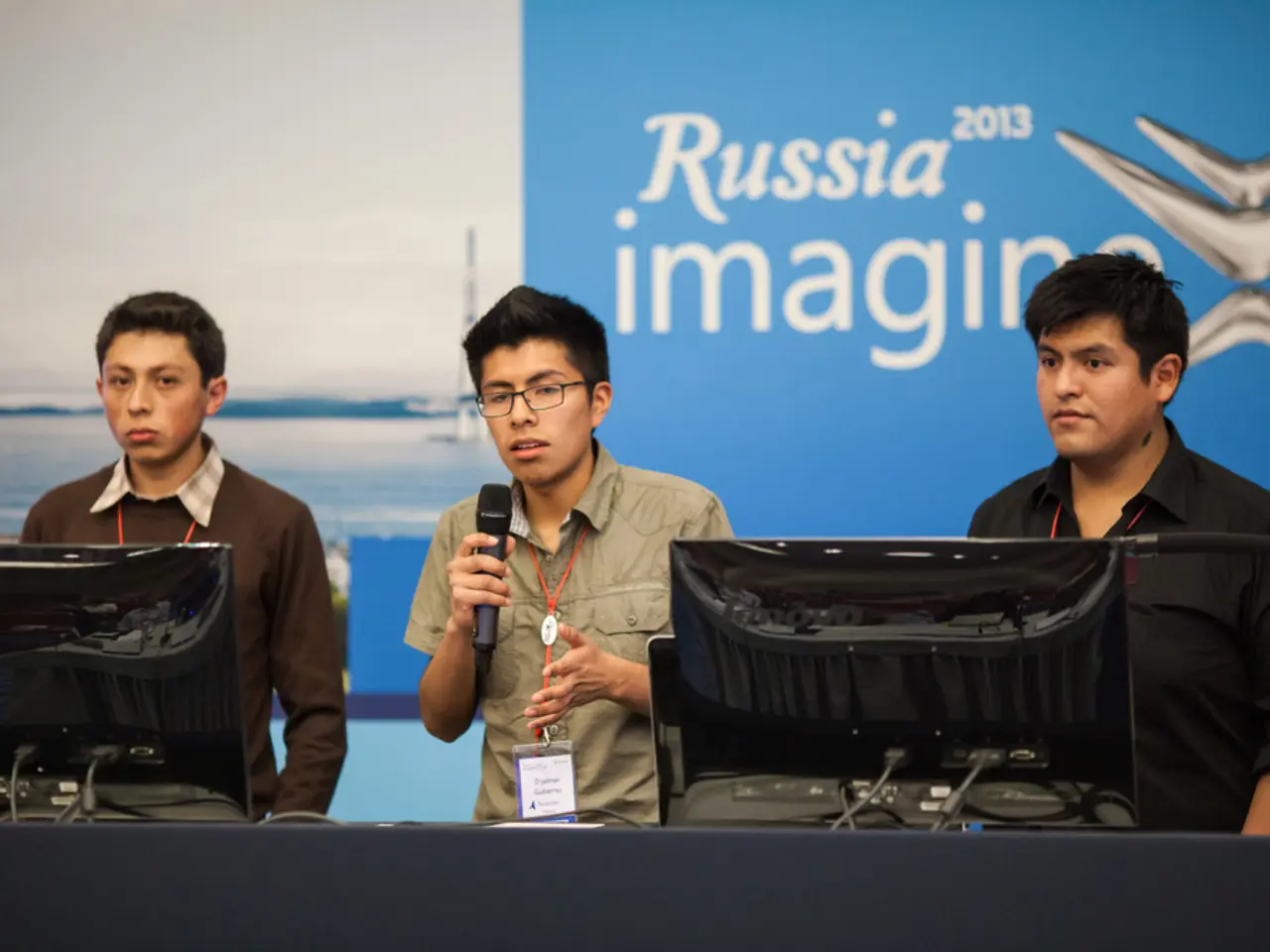Russian diplomatic victory celebrated amidst German political circles following Putin's Alaska summit
In the recent Alaska summit between U.S. President Donald Trump and Russian President Vladimir Putin, German politicians have responded with cautious relief and concern, particularly over potential gains for Putin.
Chancellor Friedrich Merz welcomed that Trump did not make territorial concessions to Russia regarding Ukrainian lands, calling the summit "good news" in that respect. However, Merz acknowledged mixed results overall, with critics emphasizing that the summit marginalized European and Ukrainian voices by excluding them from critical discussions.
Norbert Röttgen, a German politician, believes that Trump wants to achieve a ceasefire in Ukraine. However, Röttgen also stated that Putin is not interested in a ceasefire and, in fact, wants to destroy Ukraine. This sentiment is shared by Sara Nanni, a representative of Germany's Green Party, who agrees that Putin has emerged the winner from the summit and calls for Europe to find effective leverage.
The exclusion of European and Ukrainian voices from the summit is seen as a strategic win for Putin, who secured a diplomatic platform after years of isolation and possibly influenced Trump toward delaying harsher sanctions and echoing Russian narratives about the war’s causes. This could risk prolonging Ukraine’s conflict and weakening Western unity.
An emergency European virtual summit led by Merz before the Alaska talks focused on coordinating pressure against Russia and safeguarding Ukraine’s interests, underscoring German and European efforts to counterbalance what they viewed as potentially detrimental U.S.–Russia bilateral dealings.
Marie-Agnes Strack-Zimmermann, a member of the European Parliament, stated that the West's unity has been destroyed and Trump has lost his "moral compass". Roderich Kiesewetter, a member of the Bundestag's foreign policy committee, called the summit a "Black Friday" with no results and no serious agreements. Kiesewetter believes Putin has put himself back in a position of equality with the United States in the international arena and has been "rehabilitated".
Overall, while the lack of territorial concessions was welcomed, German politicians remain wary that the summit may strengthen Putin’s position diplomatically and militarily by enabling a narrative beneficial to Russia, and that sidelining Ukraine and Europe risks undermining the collective Western response to the Russo-Ukrainian war.
- The exclusion of European and Ukrainian voices in the summit could be interpreted as a strategic move by Putin, positioning him to potentially influence Trump's policies on war-and-conflicts, specifically the Russo-Ukrainian war.
- In the aftermath of the Alaska summit, German politicians, such as Marie-Agnes Strack-Zimmermann and Roderich Kiesewetter, have expressed concerns that policy-and-legislation related to war-and-conflicts and sanctions could be swayed in Russia's favor.
- The tumultuous outcome of the Alaska summit, as described by German and European politicians, raises questions about the future of international relations, particularly in terms of health, economy, and general-news, as Western unity seems to be at stake.







